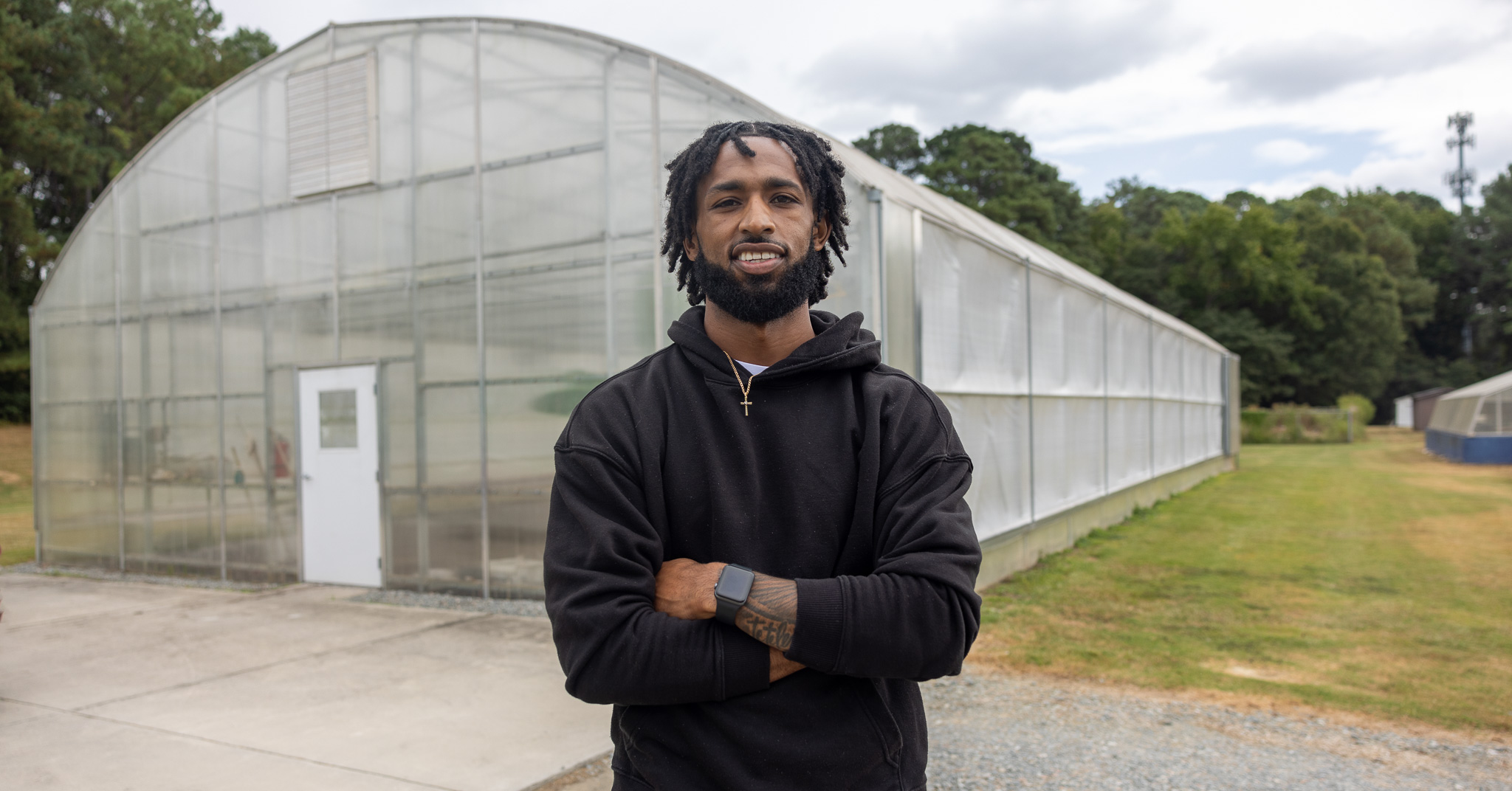GOLDSBORO, N.C. – For Devante Mason, agriculture isn’t just a career path—it’s a return to his roots. The Air Force veteran, who grew up on his grandfather’s 100-acre farm in South Carolina, is now channeling his lifelong passion into formal education at Wayne Community College, where he’s pursuing dual degrees in Sustainable Agriculture and Agribusiness Technology.
Mason’s journey to WCC began with six years of service in the U.S. Air Force at Seymour Johnson Air Force Base in Goldsboro. After completing his military career, he found himself at a crossroads. The pull of agriculture—the industry that shaped his childhood—proved irresistible.
“Although I come from an agricultural background, I came to school with a completely open mind, trying to learn as much information as I could about all of the new technologies in agriculture today,” Mason said.
Despite his hands-on experience working alongside his grandfather, Mason recognized the importance of formal education in an industry rapidly evolving with new technologies and sustainable practices. WCC’s agriculture programs offered exactly what he was looking for.
Comprehensive Training for North Carolina’s Top Industry
WCC’s Sustainable Agriculture program equips students with the entrepreneurial and technical skills needed to manage profitable, environmentally sound, community-based farms and agricultural businesses. The complementary Agribusiness Technology program focuses on the business aspects of the agriculture industry.
Both programs offer Associate in Applied Science degrees and certificates, with the added benefit of transfer opportunities to the University of Mount Olive for students seeking a Bachelor of Science in Agricultural Production Systems.
A key component of the curriculum is work-based learning, which connects students with real-world industry experience. Mason has embraced this requirement through his position at 12:03AM Farm in Faison, where he bridges classroom theory with practical application.
“Everything we learn in class is applied to my day-to-day,” Mason explained. At the farm, he maintains livestock, manages planting and crop rotation, and implements sustainable techniques including tarping and trellising—all while incorporating modern agricultural technology.
Building Connections in a Close-Knit Community
Beyond technical skills, Mason has discovered the value of WCC’s tight-knit agricultural community for professional networking.
“WCC has brought me great success with networking,” he said. “It’s a small community, and that’s what I wanted. It’s easier to create bonds.”
This network effect is particularly valuable in Wayne County, where agriculture plays a crucial role in the regional economy. The connections Mason has built through the college are already opening doors for his future career.
Looking Ahead
Set to graduate with two associate degrees in spring 2026, Mason plans to continue his education in agribusiness with a particular interest in the governmental side of agriculture. His experience has made him an advocate for formal agricultural education.
“I would suggest starting at WCC because of the community,” Mason said. “There are a lot of resources here, too. I’ve had a great experience and highly advise it.”
As he prepares for the next chapter, Mason is eager to share his newly acquired knowledge with his grandfather—the man who first introduced him to farming. Whatever direction his career takes, Mason remains committed to the passion and principles that have guided him since childhood.
“Agriculture is great because of what you can learn through it—what’s necessary in life,” he said.
For more information about WCC’s Agriculture and Natural Resources department, visit the college website or contact Department Chair Gabe Mitchell at [email protected] or 919-739-6807.

